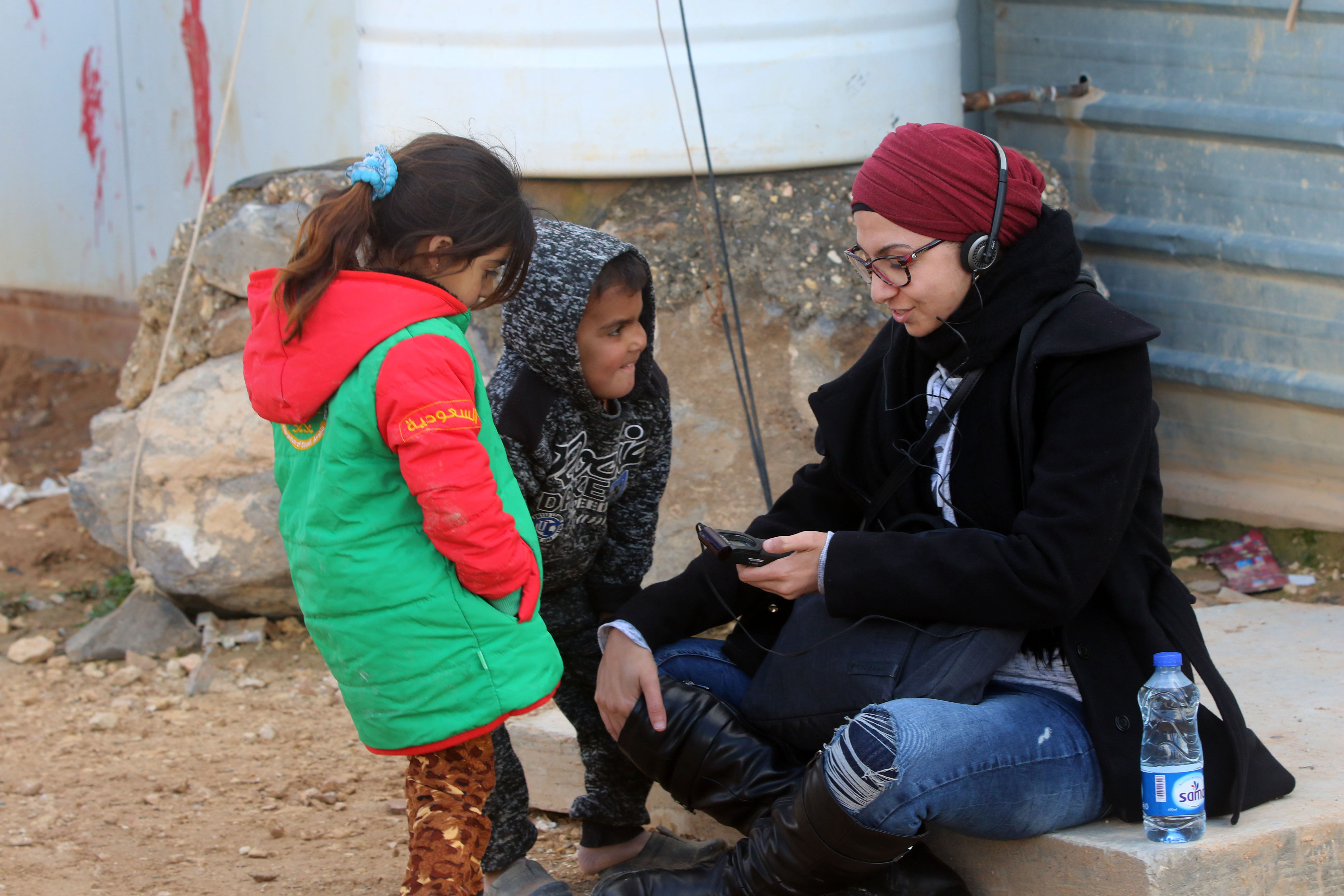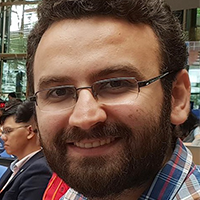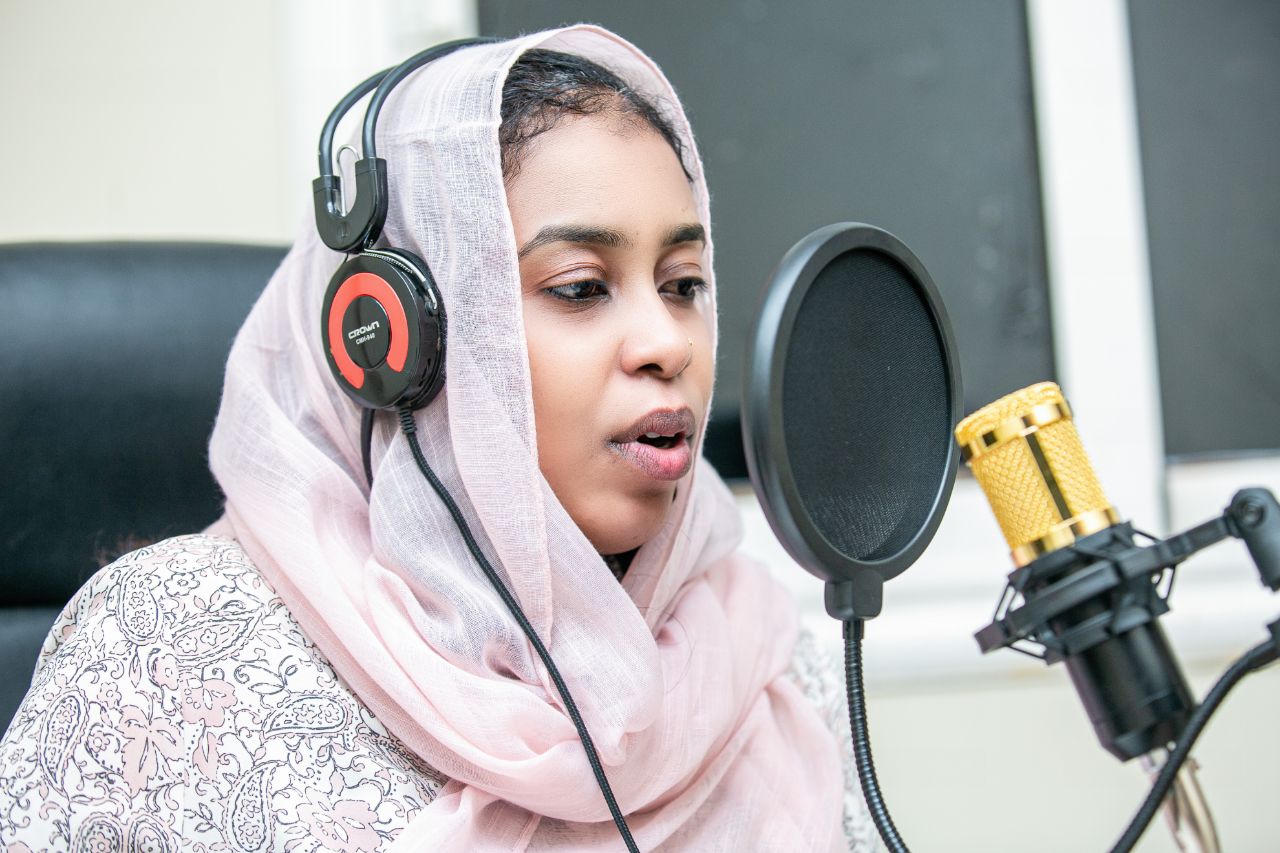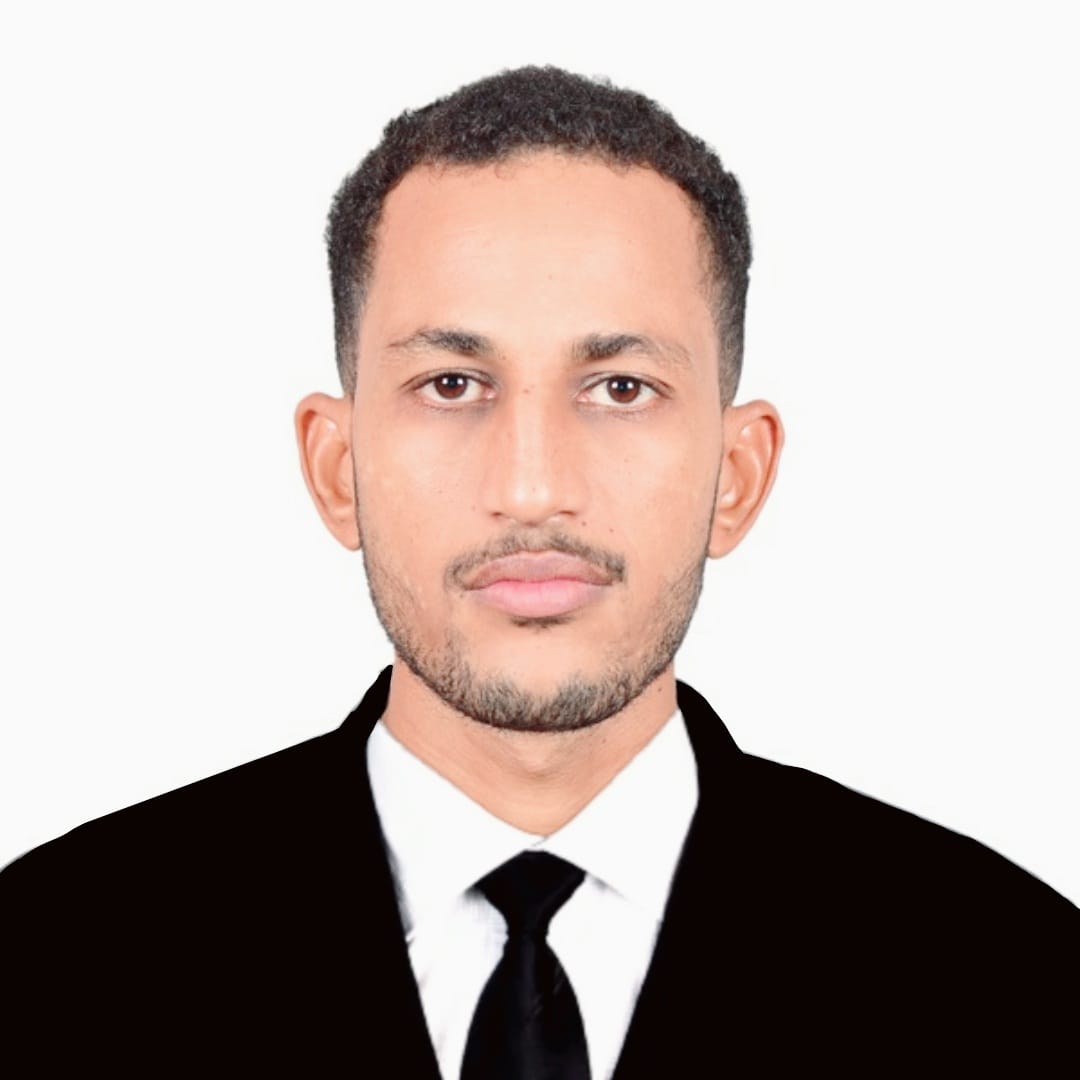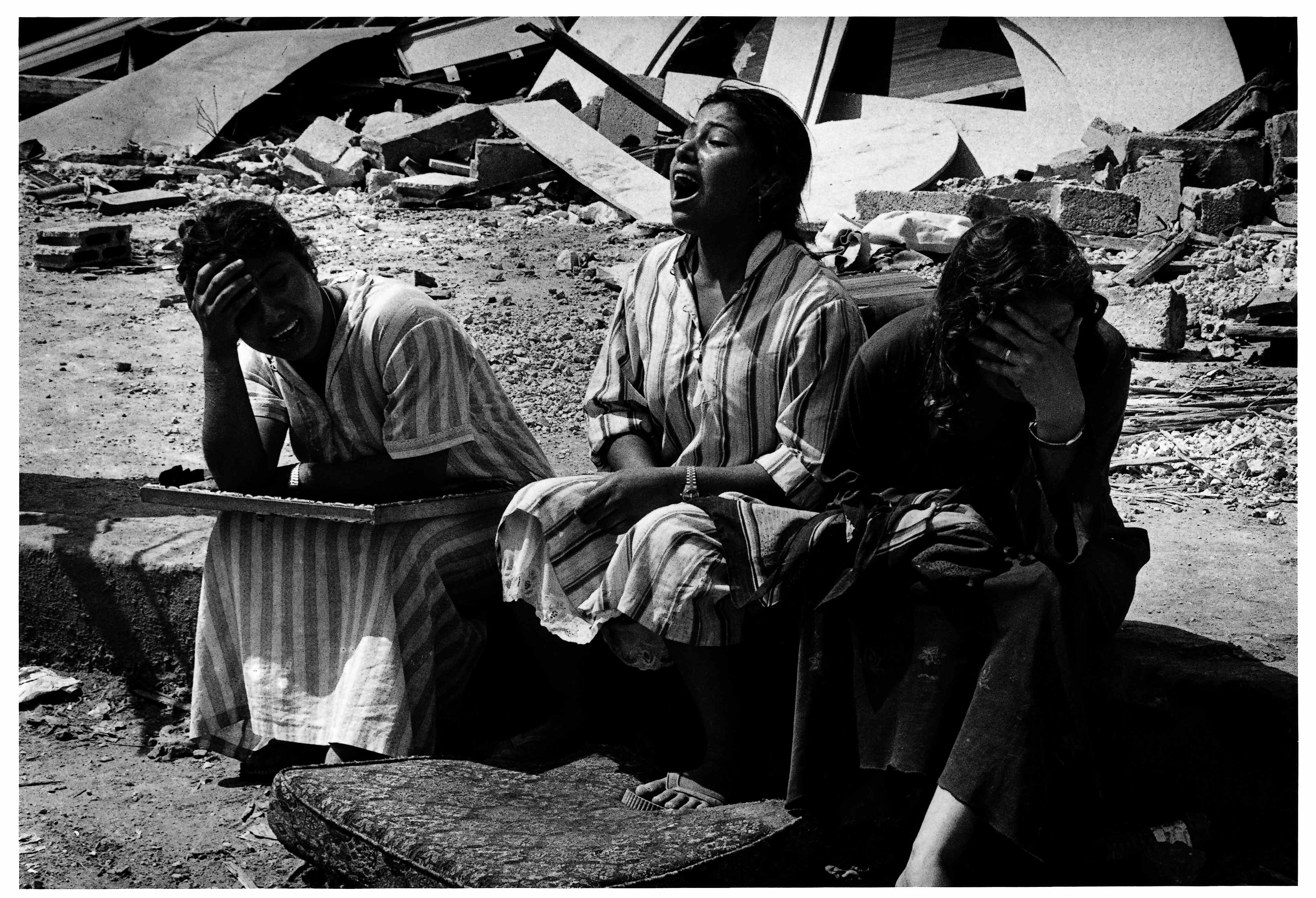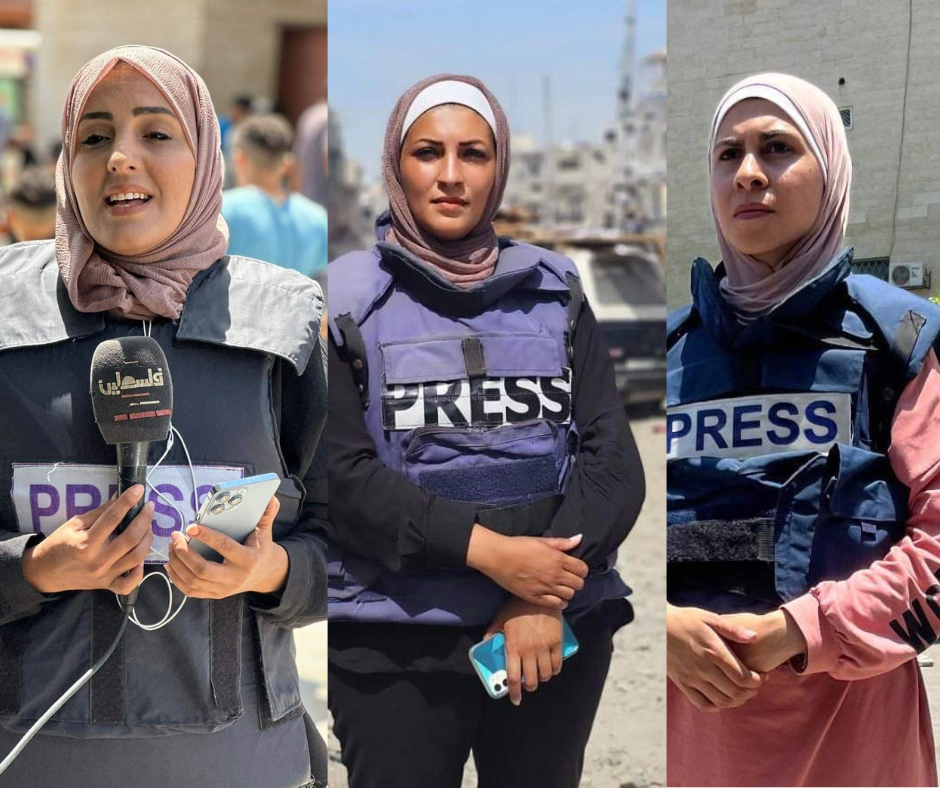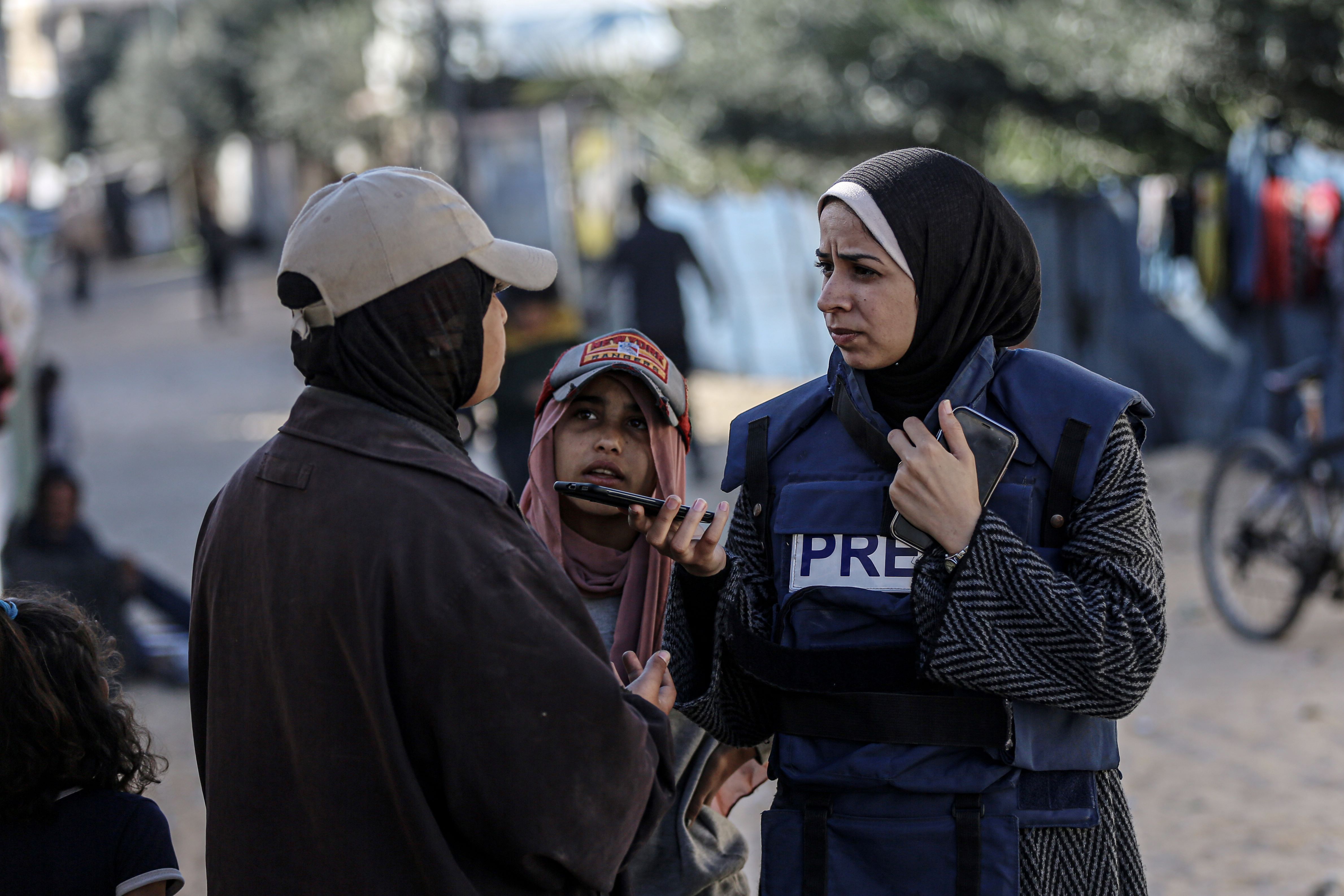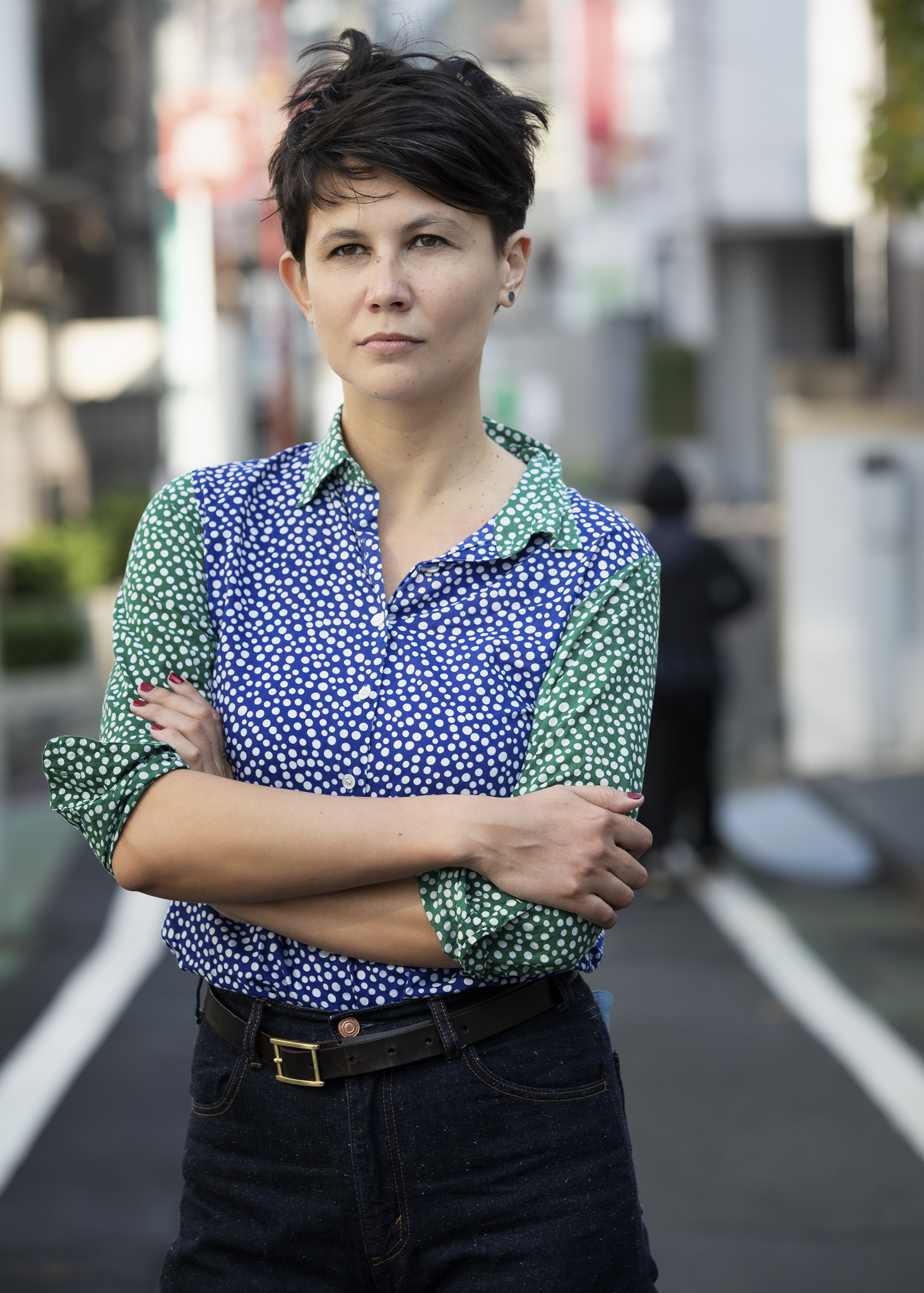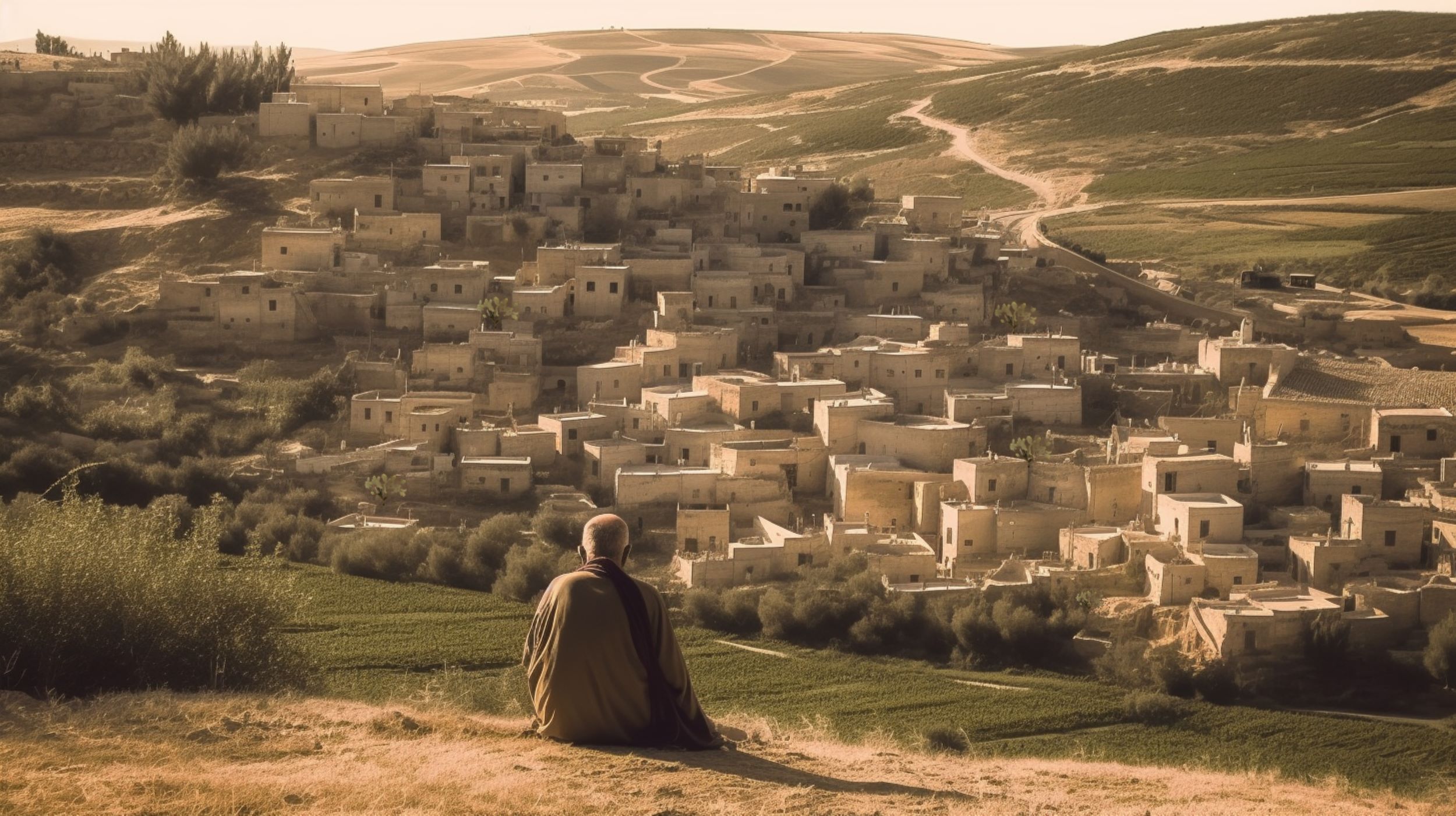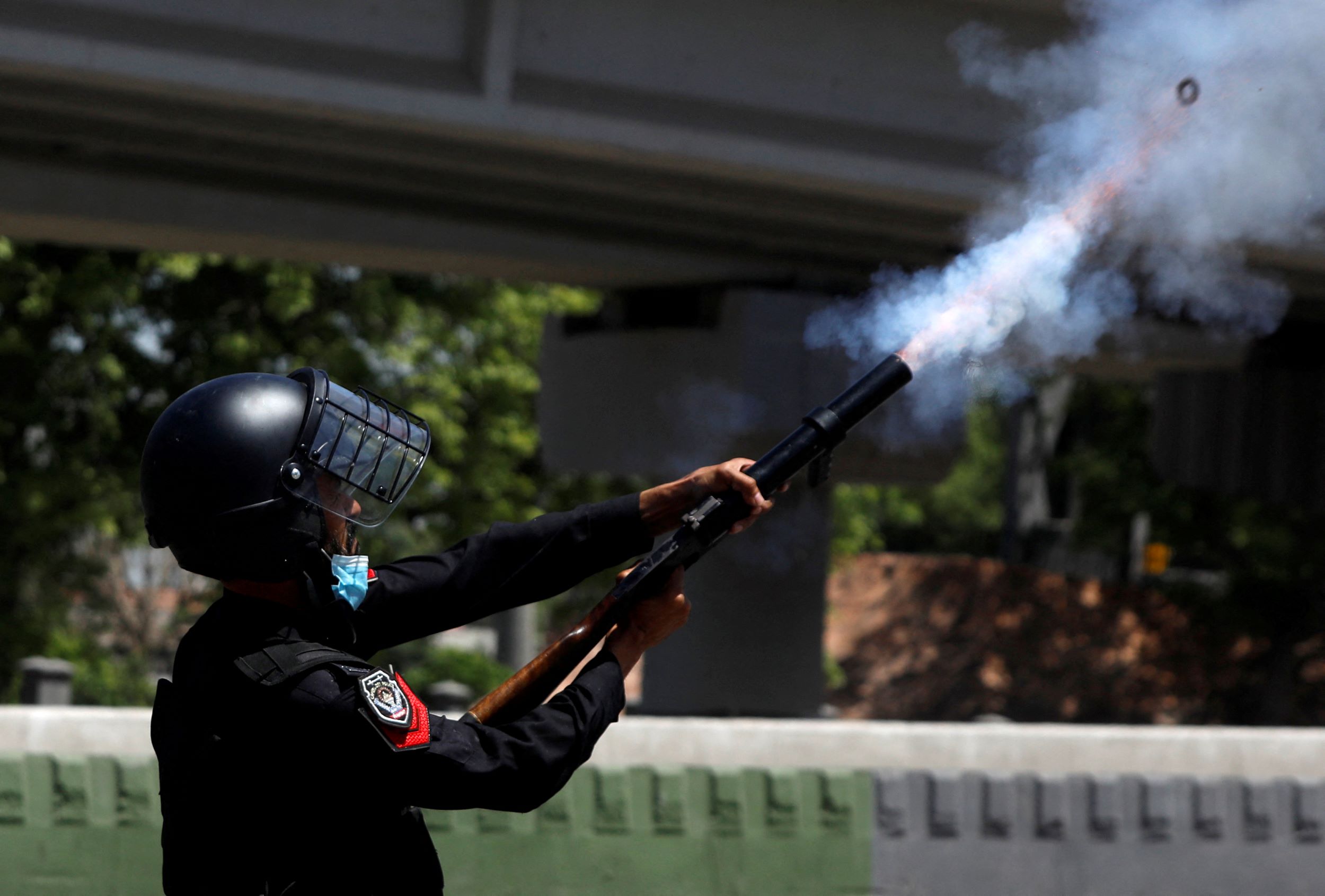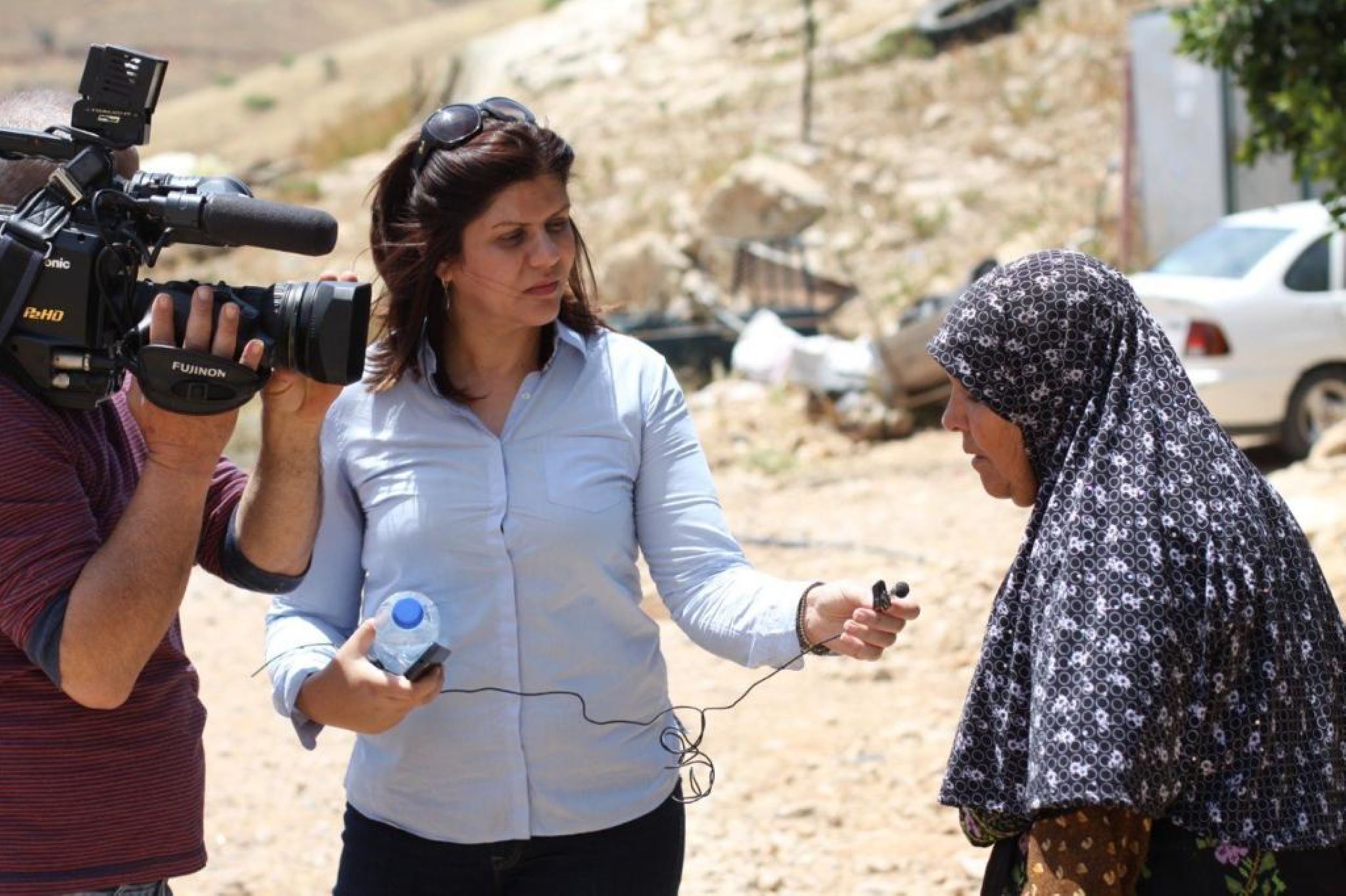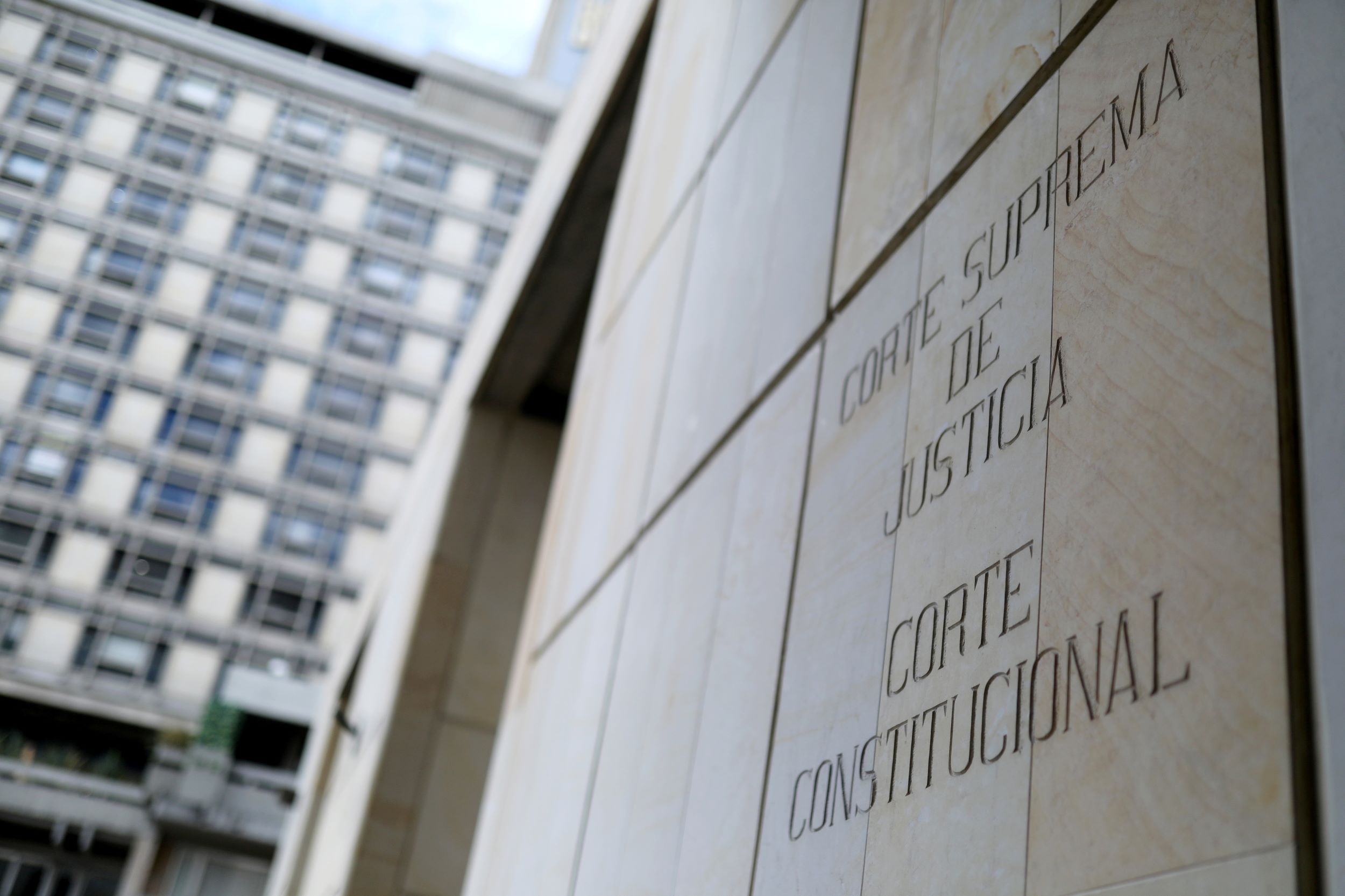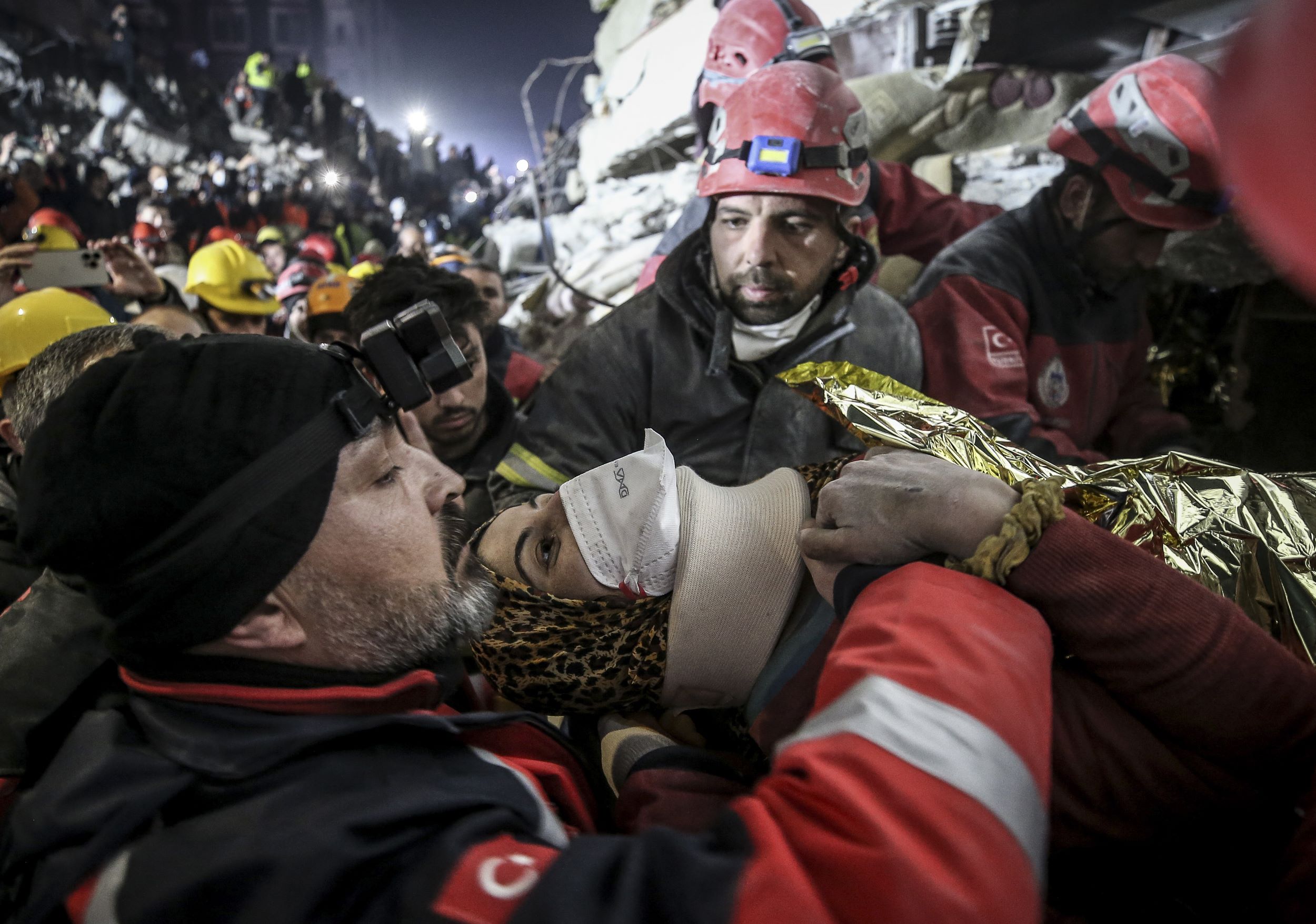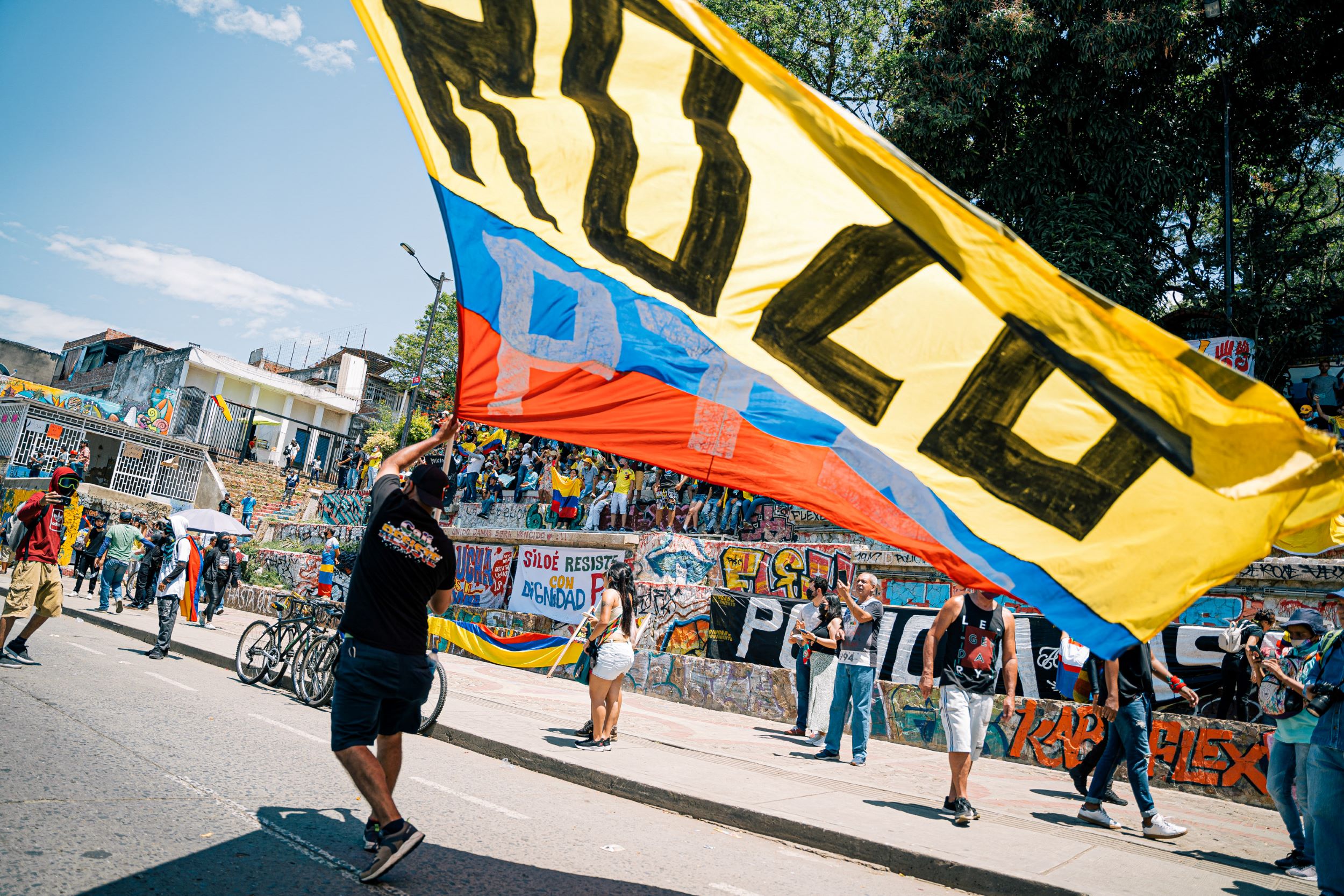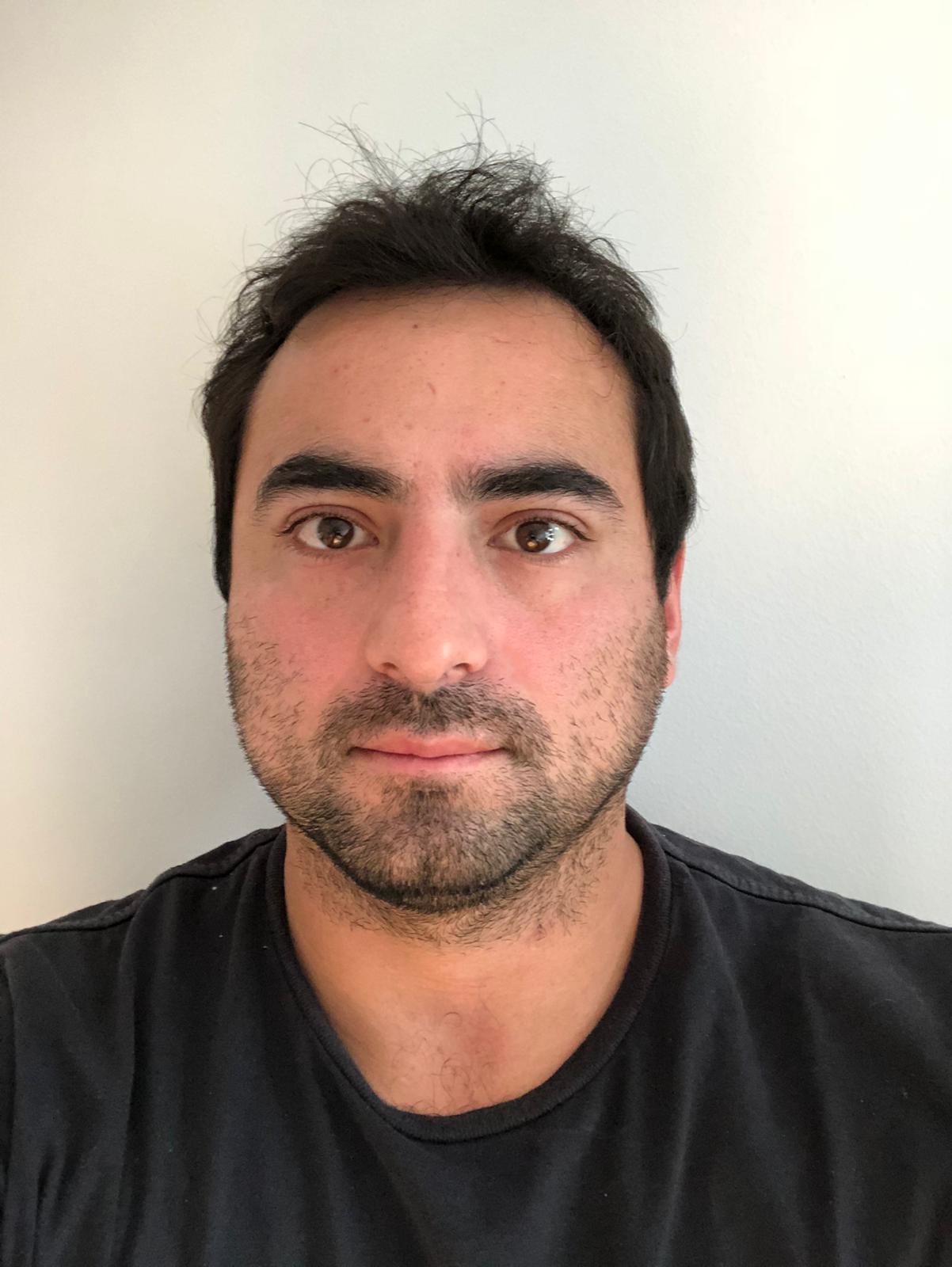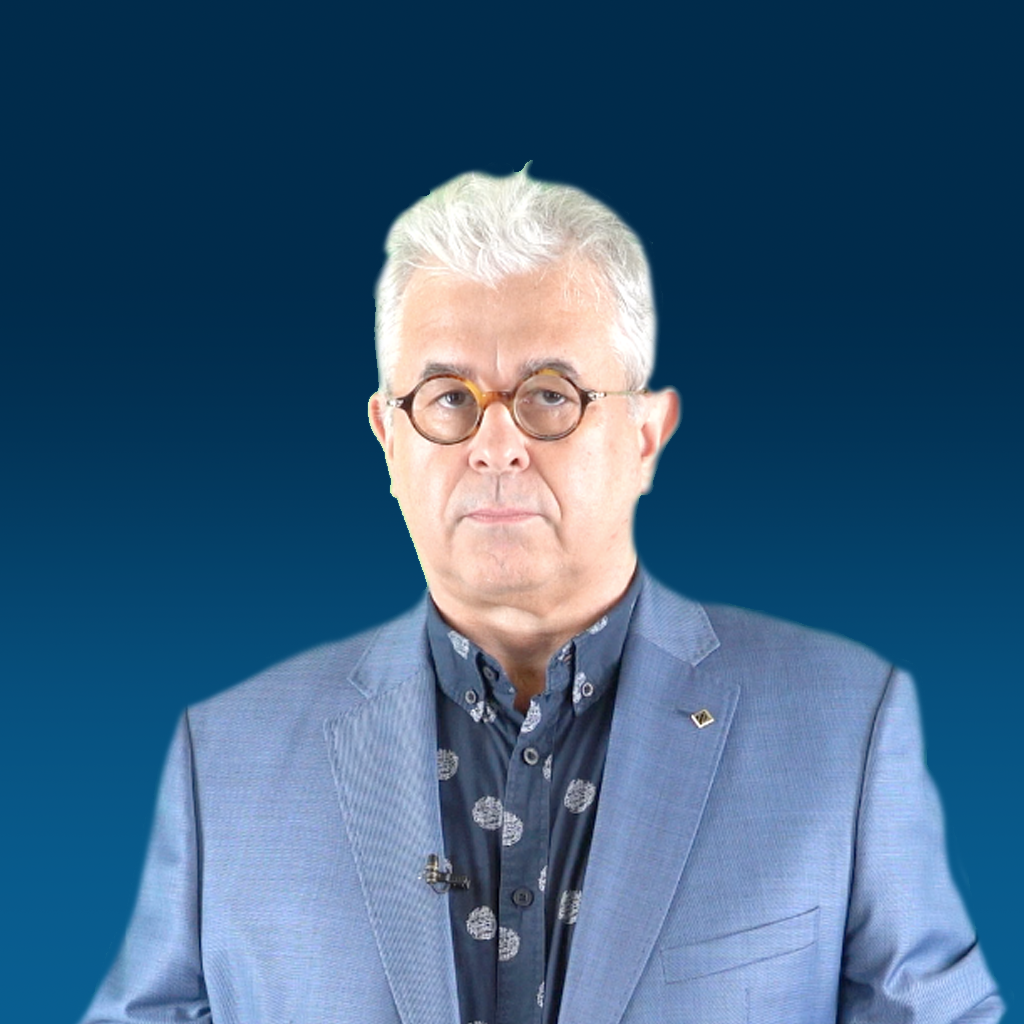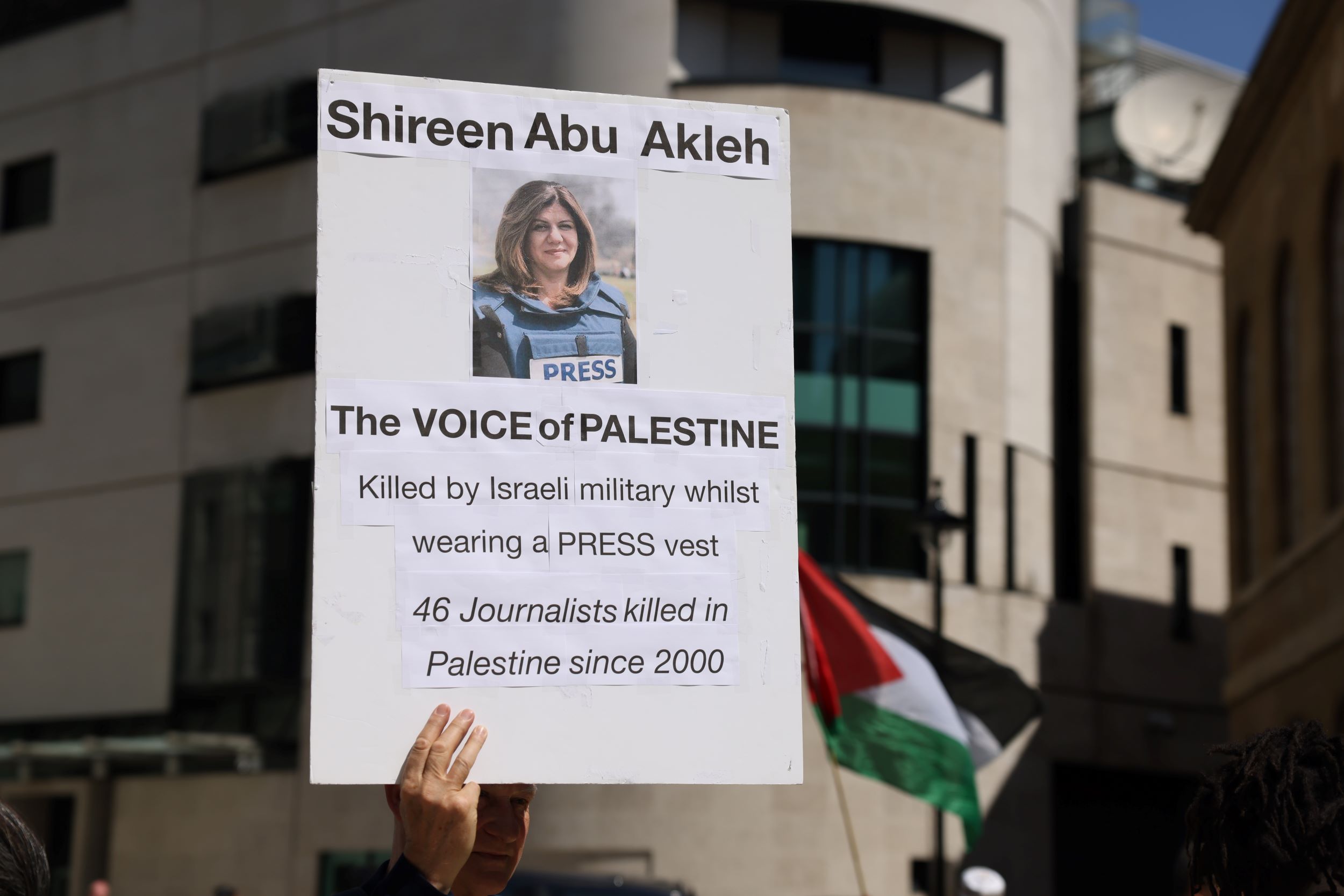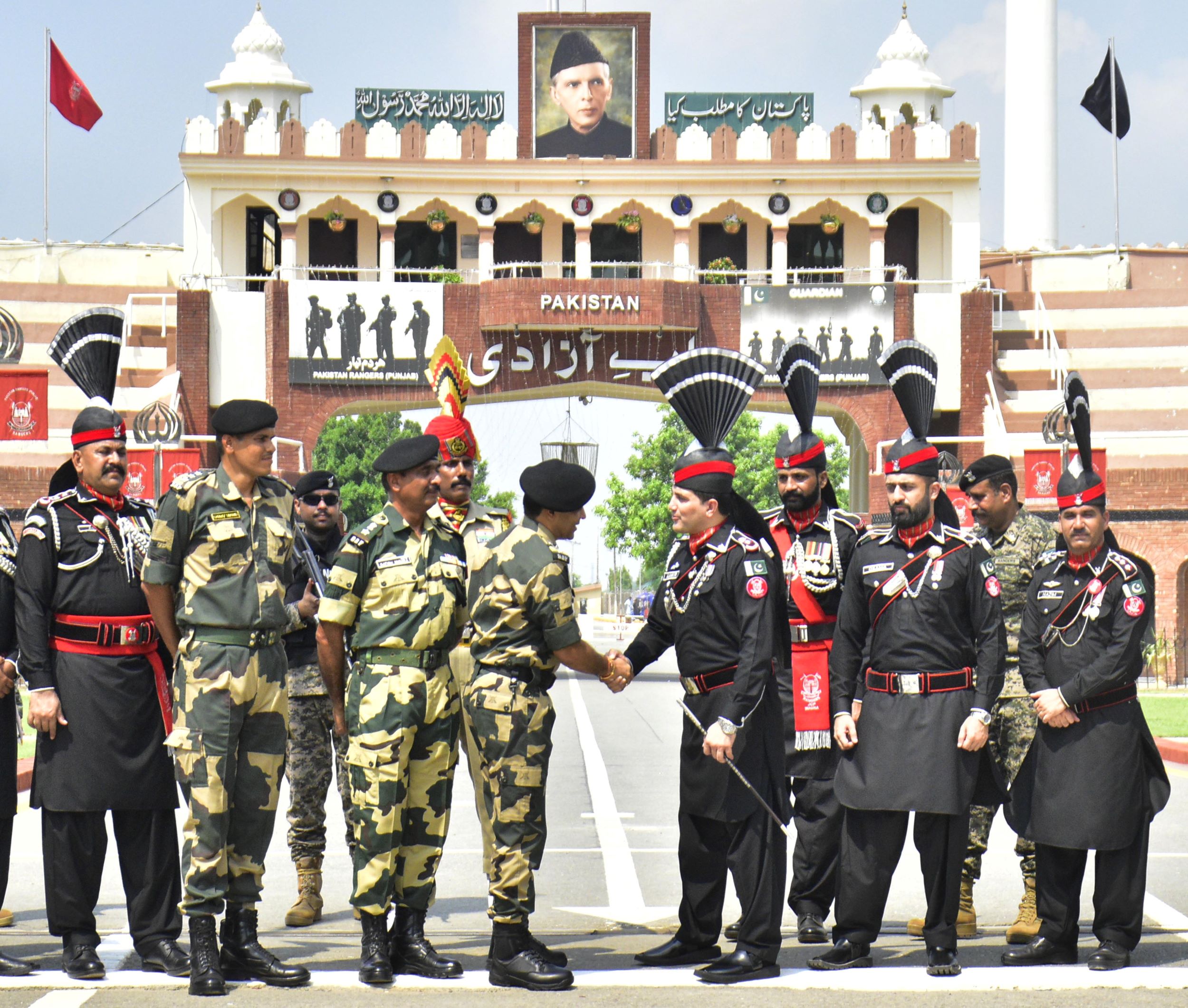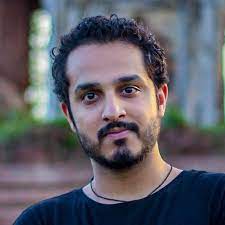في عصر تدفق المعلومات عبر الوسائط المتعددة، أصبح الشغل الشاغل لكثير من الصحفيين هو سرعة نشر المعلومة، مما قد يؤثر على دقة نقل الصورة العامة بكل تفاصيلها. فكيف نتمهل في وقت يركض فيه آخرون، دون أن يؤثر هذا التأني على جاذبية القصة؟
مشياً على الأقدام لرواية قصص اللاجئين
يقطع صانع الأفلام الألماني غريغوري ريشترس أكثر من ألف كيلومتر من باريس إلى برلين مشياً على الأقدام، من أجل دعوة الحكومات الأوروبية لإحضار ألف طفل لاجئ من أحد أسوأ المخيمات في اليونان إلى ألمانيا.
قصة لم تتناولها العديد من وسائل الإعلام العربية، أو ذكرتها بعضها كخبر قصير. لكنني أعتقد أنها تستحق أن يتأنى الصحفي في سردها، وأن يقف على دوافع هذا الشاب الذي يمشي في هذا الشتاء البارد على مدار نحو أربعين يوماً، في وقت انقلبت فيه سياسة اللجوء في البلاد من الترحيب باللاجئين إلى ترحيلهم.
تواصلت مع الشاب "غريغ" -كما يحب أن يسمي نفسه- والتقيته لأتعرف على قصته عن قرب. أسئلة كثيرة كانت في ذهني عن مبادرته؛ كنت أريد أن أعرف كيف يروج لها بين الناس، ولماذا اختار مخيم موريا في اليونان بالتحديد من أجل الدعوة لإحضار الأطفال منه؟ وكيف يمكنه إيصال صوته إلى المسؤولين ويغير حياة أولئك الأطفال؟ وغيرها الكثير من التفاصيل الأخرى التي لم أجدها في الأخبار التي كتبت عن قصته.
أتمهل بينما يركض الآخرون
في الوقت الذي ينشغل فيه بعض الزملاء الصحفيين بالأخبار العاجلة، يتركز عمل آخرين -وأنا منهم- في التفكير بتأثير هذه الأخبار -التي قد تتضمن قرارات هامة- على حياة الناس بشكل عام، والشريحة المستهدفة من الجمهور بشكل خاص. يجري الفريق الصحفي بحثاً مكثفاً عن خلفية الخبر أو القرار، ثم يبحث عن أبطال القصة.
غالباً ما أبدأ تقريري بقصة أحد الأبطال من أجل تقريب الصورة أكثر إلى ذهن القارئ، فهو لا يقرأ خبراً صرفاً، بل قصة إنسانية يستطيع أن يتخيل نفسه بطلها ويشعر بما يشعر به بطل القصة الحقيقي. قد يتساءل المرء: "ماذا؟ بطل؟ هل هذه رواية؟"، وأنا أجيب: "إنها الصحافة المتأنية".
وهو تماماً ما يحتاجه الصحفي لسرد قصة غريغ المقيم في لوكسمبورغ، فمن دون معرفة الظروف السيئة التي يعيشها الأطفال في مخيمات الجزر اليونانية، لا يمكن تصور القصة كاملة.
بدأت القصة عندما علم غريغ من بعض الأصدقاء والمتطوعين بمعاناة الناس في مخيم موريا باليونان.. المخيم الذي يحوي أكثر من ثلاثة أضعاف قدرته الاستيعابية على جزيرة ليسبوس التي ما زال آلاف اللاجئين عالقين فيها منذ شهور أو سنوات، فأصبحت أشبه بمخيم اعتقال.
وبعد الأحداث التي شهدتها مدينة كيمنتس الألمانية من اعتداءات ممنهجة على ذوي الأصول المهاجرة من قبل اليمين المتطرف، طفح الكيل ولم يعد غريغ يستطيع الوقوف مكتوف اليدين كما يقول، ففكر أن يسلط الضوء على معاناة اللاجئين ويحشد الدعم للمهاجرين في نفس الوقت.. "عصفوران بحجر واحد"، فخطرت في باله مبادرته بالمشي من باريس إلى برلين، مروراً بــ 30 مدينة أوروبية.
ومن أجل لفت الأنظار، استأجر حافلة صغيرة ملونة تمشي معه، دون أن يقودها هو بنفسه، ليطلب من الناس في كل مدينة يذهب إليها أن يوقعوا عليها لإظهار دعمهم للاجئين. كما أطلق عريضة إلكترونية يروج لها خلال رحلته، لتكون حجة له أمام المسؤولين.
المهم بالنسبة لي في قصة غريغ وغيرها، هو سبر أغوار ما وراء الخبر، وليس الخبر نفسه، في عصر أصبحت فيه غالبية القنوات تستمد الأخبار الهامة من الوكالات العالمية أو الإقليمية. إذن فاللجوء إلى الصحافة المتأنية ليس لأسباب إنسانية فحسب، بل لأسباب مهنية تتعلق بالتميز وكسب ثقة الجمهور الذي سرعان ما يتوجه إلى الموقع حالما ينتشر خبر جديد، ليرى إمكانية تأثير ما يتضمنه الخبر عليه.
صحافة متأنية في خضم ثورة التواصل الاجتماعي
إحدى التحديات التي تواجه الصحافة المتأنية في ظل ثورة الإعلام الرقمي؛ هي جذب جمهور تعوّد خلال السنوات الأخيرة على متابعة المحتويات المرئية التي تبسط له الأفكار الرئيسية لمسائل معقدة في فيديوهات لا يتجاوز كلّ منها بضع دقائق. لكن، من قال إنه لا يمكننا الاستفادة من هذه الثورة الرقمية لإغناء تقريرنا "المتأني"؟ ولعل الفيديوهات التي ينجزها موقع "ميدان" في شبكة الجزيرة، أو فيديوهات برنامج السلطة الخامسة على صفحة "DW" على فيسبوك، تثبت ذلك.
يرى رئيس مجتمع "ناشيونال جيوغرافيك" غاري نيل أن النقاش حول الصحافة المتأنية انبثق أصلاً من خلال استخدام وسائل التواصل الاجتماعي، وذلك عندما بدأ الكاتب لدى "ناشيونال جيوغرافيك" باول سالوبيك جولته حول العالم، التي تستغرق سبع سنوات بدءاً من إثيوبيا، شارك خلالها القصص التي شاهدها مع العالم عبر تويتر وسكايب والتدوين الإلكتروني.
وفي العام 2016، قال نيل لموقع "إنترناشيونال إنوفيشن": "إنه (باول) ينشئ مختبراً رقمياً لرواية القصص يجمع بين (مرحلة) ما قبل الرحلة والمنظور أثناء الرحلة، من خلال إعداد تقارير حميمية وعصرية على طول الطريق، ملتقطاً الفروق الدقيقة في الحياة العادية التي غالباً ما يتم تجاهلها عند مطاردة عناوين الأخبار اليومية بشكل فوري".
في قصة غريغ مثلاً، يهمني أن أوصل الصورة كاملة إلى الناس من وقت انطلاق الفكرة وحتى أرى نتائجها. لذلك حرصت على إنجاز تقرير وفيديو مخصص لوسائل التواصل الاجتماعي وتقرير مكتوب مدعوم بالصور، بالإضافة إلى إمكانية رصد كل جديد يحصل معه على تويتر.
ففي أحد مواقف الرحلة، مدينة هانوفر الألمانية، استغل بعض أنصار اليمين المتطرف نوم غريغ، وكتبوا شعارات ضد اللاجئين على الحافلة. يقول غريغ: "مسحنا تلك الشعارات، لكن حوادث صغيرة كهذه دليل آخر على أن لكل مجتمع مجانينه". تطورات كهذه يمكن تغطيتها عبر وسائل التواصل الاجتماعي مرفقة برابط القصة الأصلية.
صورة كاملة وجذابة
وكمثال آخر على تغطية "متأنية" أنجزناها، في موقع "مهاجر نيوز" -الذي أعمل فيه إلى جانب عملي في "DW"- سأتناول تغطيتنا لأوضاع اللاجئين في النمسا.
منذ نهاية العام 2017 والنمسا تحكمها حكومة ائتلافية بين اليمين المحافظ واليمين المتطرف، اللذين استغلا أزمة اللجوء في أوروبا التي بدأت عام 2015 لكسب أصوات "المواطنين القلقين من أن تغرق بلادهم باللاجئين". ومنذ ذلك الحين أصدرت الحكومة النمساوية عدة قرارات مثيرة للجدل تتعلق بتقليص حقوق المهاجرين واللاجئين، منها ربط المساعدات الاجتماعية بالالتزام بتعلم مستوى معين من اللغة، وحرمان طالبي اللجوء من إمكانية القيام بتدريب مهني، بعد أن كانت الحكومة السابقة قد منحتهم ذلك.
بعد أن نُشرت الأخبار المتعلقة بهذه القرارات، وبعد العودة إلى مضمون القرارات بالتفصيل من خلال المواقع النمساوية الرسمية، وصلتُ عبر أصدقاء في النمسا إلى طالبي لجوء ولاجئين تمسهم هذه المواضيع بشكل مباشر، وانطلقت في تقاريري من قصصهم ومخاوفهم من أجل تقريب الصورة للقارئ.
ورغم تناول قصصهم بشكل شخصي في بضعة تقارير، فإنني كنت بحاجة إلى تقريب الصورة أكثر، ليس عبر المقالات المكتوبة فحسب، بل عبر الوسائط المتعددة. وهكذا، توجهت إلى النمسا ضمن فريق، وأجرينا لقاءات مع عشرات اللاجئين وطالبي اللجوء في مدينتين رئيسيتين هما العاصمة فيينا وسالزبورغ.
زرنا مقر منظمة العفو الدولية وتحدثنا مع مديرها الإقليمي عن الجو العام في البلاد تجاه اللاجئين، كما حاورنا متخصصين في شؤون اللجوء والاندماج، بالإضافة إلى زيارة إلى الحدود بين النمسا وألمانيا للاطلاع على الوضع هناك، حيث إن الكثير من طالبي اللجوء الذين قابلناهم أبدوا رغبتهم في الانتقال من النمسا إلى ألمانيا بسبب "مرونة سياسة اللجوء فيها"، رغم أن قاعدة دبلن لا تسمح بذلك.
ورغم إجماع الغالبية على صعوبة اندماج اللاجئين في ظل الحكومة الحالية، فإننا لم ننسَ نقل الوجه الآخر أيضاً، وذلك بزيارة عائلات لاجئة اندمجت في المجتمع من خلال تعلم اللغة وإيجاد عمل أو الحصول على مقعد دراسي في وقت قصير.
أنجزنا تقريراً مطولاً فيه كل مشاهداتنا عن الوضع العام للاجئين في النمسا، بالإضافة إلى استطلاع للرأي عن آراء الناس بالجو العام تجاه اللاجئين في البلاد، وتقارير عن قصص نجاح، ومقالات توضيحية عن بعض النقاط الأخرى مثل كيفية الدراسة في النمسا، إلى جانب مخططات توضيحية وغرافيكس عن الإحصائيات الرسمية لطالبي اللجوء واللاجئين في البلاد.
بتلك الزيارة التي قمنا بها بعد بحث طويل عن الوضع في النمسا منذ تولي اليمين واليمين المتطرف الحكم، توضحت لنا ولقرائنا الصورة العامة للنمسا، فنحن لم نكتب نصوصاً وتقارير فحسب، بل جعلنا القارئ يرى أننا في عين الحدث وبين الناس ننقل أصواتهم وانفعالاتهم ونشارك قصصهم بالنص والصوت والصورة، ولم يكن ذلك ليتم لو لم نستخدم الوسائط المتعددة؛ فإحدى مفاتيح نجاح أي موقع أو مؤسسة إعلامية هو الاعتماد على الصحافة المتأنية باستخدام الوسائط المتعددة.
يرى الصحفي الذي يعد تقارير متأنية ثمار القصة بعد وقت طويل قضاه في غرسها، ففي قصة صانع الأفلام الألماني، وافقت 11 مدينة ألمانية على استقبال الأطفال اللاجئين، لكن غريغ ما زال بحاجة إلى إقناع الحكومة الاتحادية بذلك، ويقول إن استقبال أولئك الأطفال سيكون أفضل هدية يمكن تقديمها لهم في أجواء عيد الميلاد. وكأن بطل قصتنا يريد أن يصبح "بابا نويل" هذه السنة، معتمداً على الإعلام ووسائل التواصل الاجتماعي لتحقيق ذلك. ولم لا؟ وحاجتنا إلى التفكير المتأني تزداد في عصر ثورة تدفق المعلومات!
